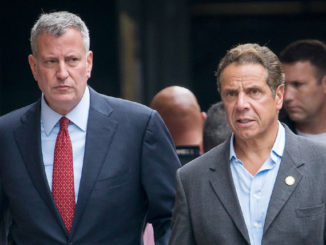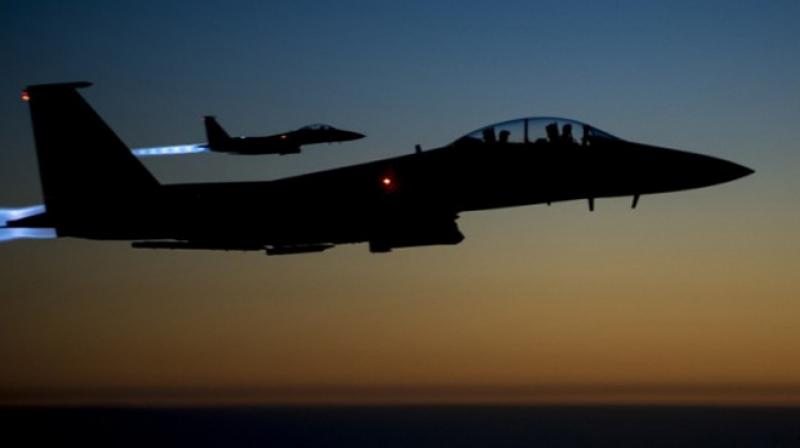
OSLO (TIP): The 2024 Nobel Peace Prize was awarded on Friday, October 11, to the Japanese organization Nihon Hidankyo, a grass-roots movement of atomic bomb survivors, “for its efforts to achieve a world free of nuclear weapons.”
The New York Times reports that Nihon Hidankyo has for decades represented hundreds of thousands of survivors of the U.S. atomic bombings of Hiroshima and Nagasaki in 1945. These survivors, known as the hibakusha, are living memorials to the horror of the attacks and have used their testimony to raise awareness of the human consequences of nuclear warfare.
The Nobel — one of the world’s most prestigious honors — recognizes the group at a time when survivors of the attacks, which killed an estimated 200,000 people, are mostly in their 80s and are dying by the hundreds each month. And it comes as the world confronts increasing worries about Russia’s veiled threats that it could use its arsenal as the war in Ukraine continues and about the nuclear programs of Iran and North Korea.
“The hibakusha help us to describe the indescribable, to think the unthinkable, and to somehow grasp the incomprehensible pain and suffering caused by nuclear weapons,” Jorgen Watne Frydnes, the chairman of the Norwegian Nobel Committee, said during his announcement on Friday.
Mr. Frydnes added that “extraordinary efforts” by survivors of the U.S. nuclear bombings, including those who are part of Nihon Hidankyo, “have contributed greatly to the establishment of the nuclear taboo.” That, he said, had led to a world in which no weapons of that type had been used in war in 80 years. He added that it was alarming to see that taboo fading in recent years.
Mr. Frydnes said that the Nobel committee, in honoring Nihon Hidankyo, wished “to honor all survivors who despite physical suffering and painful memories have chosen to use their painful experience to cultivate hope.”
The Peace Prize is arguably the most distinguished of the Nobels, and its recipients have often been celebrated global figures, such as Nelson Mandela, Malala Yousafzai, President Barack Obama and the 14th Dalai Lama, Tenzin Gyatso.
The 2023 prize was awarded to Narges Mohammadi, an imprisoned Iranian human rights activist.
The prize, first awarded in 1901, has also been given to 30 organizations, including twice to the Office of the United Nations High Commissioner for Refugees and three times to the International Committee of the Red Cross. The World Food Program, a U.N. agency, received the award in 2020.
This year, the Norwegian Nobel Committee, which administers the prize, registered 286 candidates, including 197 individuals and 89 organizations.
Prime Minister Shigeru Ishiba of Japan said in a news conference during a visit to Laos that he believed it was “extremely significant that the Nobel Peace Prize should be awarded to this organization, which has been working for many years toward the abolition of nuclear weapons.”
Tomoyuki Mimaki, the president of Nihon Hidankyo, who was watching a broadcast of the announcement from Hiroshima’s City Hall, shed tears of joy. “Please abolish nuclear weapons while we are alive,” he said when asked what he wanted to convey to people around the world. “That is the wish of 114,000 hibakusha.”
Mimaki, a survivor of the atomic bombings, said that many other survivors had died from old age but that those remaining still hoped they would be alive to see nuclear weapons disappear. “We don’t have much life left any more,” he said. “I am not sure I will be alive next year.”
Henrik Urdal, the director of the Peace Research Institute Oslo, said in a statement that presenting the award to Nihon Hidankyo “comes at a crucial time when countries are modernizing their nuclear arsenals, and threats of use by traditional and emerging nuclear powers are alarmingly on the rise.” “In an era where automated weapon systems and A.I.-driven warfare are emerging, their call for disarmament is not just historical — it is a critical message for our future,” he added, referring to the group.
Nihon Hidankyo has been nominated for the Nobel before. The International Peace Bureau, an organization focused on disarmament and itself the 1910 Nobel Peace Prize recipient, nominated the Japanese organization in 1985 and again in 1994.
During the 2005 Nobel ceremony, when the International Atomic Energy Agency was awarded the Peace Prize, the committee also mentioned Nihon Hidankyo and the hibakusha for their work in campaigning against nuclear and atomic warfare.
Established 11 years after the end of World War II, Nihon Hidankyo began as an organization representing the survivors of the atomic bomb attacks who continued to suffer not only the physical effects of radiation, but also the social stigma.
In the 68 years since its founding, Nihon Hidankyo has sent survivors to countries around the world to share their experiences of living with the effects of radiation exposure from an atomic bomb.
“Humanity must never again inflict nor suffer the sacrifice and torture we have experienced,” the group said in its founding statement in 1956.
In Japan, the survivors of the American atomic bombings of Hiroshima and Nagasaki in 1945, which killed an estimated 200,000 people, are living memorials to the blasts. Many survivors, known as hibakusha, see their life’s work as informing the wider world about what it’s like to carry the trauma, stigma and survivor’s guilt caused by the bombs, so that nuclear weapons may never be used again. This year, The New York Times’s opinion section wrote about the survivors.
This is the moment when the Norwegian Nobel Committee chairman, Jorgen Watne Frydnes, announced this year’s Peace Prize for Japan’s Nihon Hidankyo.
Nihon Hidankyo represents more than 300,000 survivors of the Hiroshima and Nagasaki attacks, known as the hibakusha. These survivors have used their testimony to raise awareness of the humanitarian consequences of nuclear warfare.
Asked what message the Nobel committee hoped to send by awarding the prize to Nihon Hidankyo, as wars rage on multiple continents, Frydnes said it was important to remind the world of the firsthand accounts of survivors of nuclear weapons.
“When we look at the developments and the conflicts around the world, we see how crucial it is to uphold a nuclear taboo — to uphold the norm — saying nuclear weapons should never be used again,” he said.
Frydnes said that the Nobel committee, in honoring Nihon Hidankyo, wished “to honor all survivors who despite physical suffering and painful memories have chosen to use their painful experience to cultivate hope.”
Jorgen Watne Frydnes, the chairman of the Norwegian Nobel Committee, said that Nihon Hidankyo, a grass-roots movement of atomic bomb survivors from Hiroshima and Nagasaki, was being recognized “for its efforts to achieve a world free of nuclear weapons and for demonstrating through witness testimony that nuclear weapons never be used again.”
(Source: NY Times)





Be the first to comment